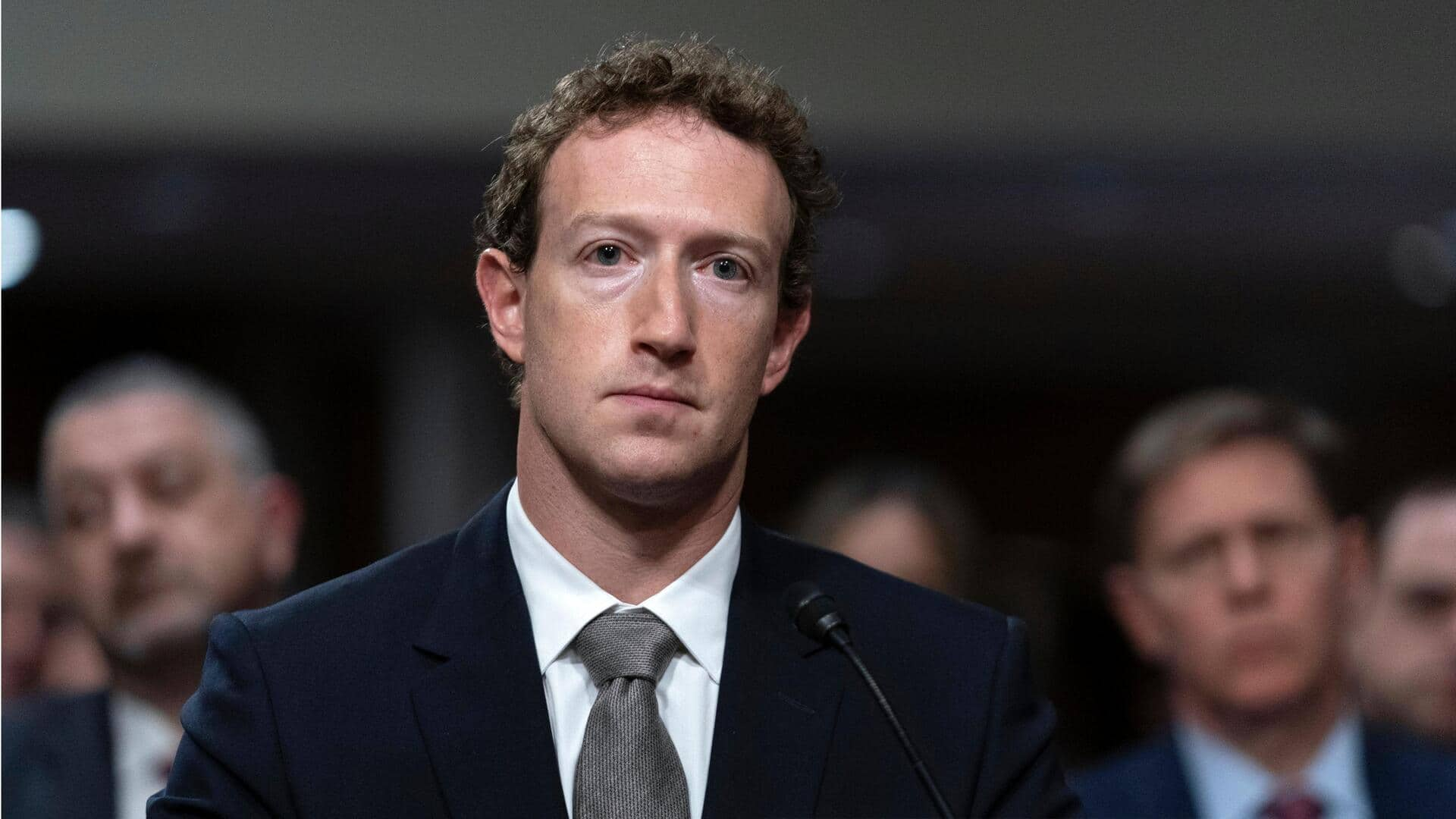
Mark Zuckerberg accused of helping China develop censorship tools
What's the story
Meta CEO Mark Zuckerberg has been accused of helping China develop censorship tools.
The allegations come from Sarah Wynn-Williams, a former Meta employee who spent seven years at Facebook before it was rebranded as Meta.
In her memoir "Careless People: A Cautionary Tale of Power, Greed, and Lost Idealism," she claims Zuckerberg hid these efforts from Congress while attempting to persuade China to allow his company to operate within its borders.
Company culture
Wynn-Williams's memoir exposes alleged 'rotten company culture'
In her memoir, Wynn-Williams, who was Facebook's director of global public policy until 2018, paints a picture of a "rotten company culture."
She describes "shocking accounts of misogyny and double standards" under Zuckerberg and former COO Sheryl Sandberg.
The book accuses them of being "callously indifferent to the price others would pay for their own enrichment."
A Meta spokesperson told The Post that Wynn-Williams was terminated in 2017 after an investigation found her making false claims.
Inside look
Memoir reveals Zuckerberg's alleged efforts to gain access to China
The memoir offers an inside look at Meta's leadership and culture.
It paints Zuckerberg, Sandberg, and Joel Kaplan (former White House Deputy Chief of Staff) as "profoundly flawed, self-interested, and careless human beings."
The book claims that the more power these executives amassed, "the less responsible they became with far-reaching consequences that continue to this day."
It also details "previously unreported lengths" Zuckerberg allegedly went to convince the Chinese Communist Party (CCP) to let Meta into China.
Censorship tools
Zuckerberg's alleged collaboration with CCP on censorship tools
Wynn-Williams accuses Zuckerberg of giving briefings to CCP officials on new technologies such as AI.
The memoir also alleges that he collaborated with the CCP to develop custom censorship tools.
Further, it claims Zuckerberg tried to hide Meta's collaboration with the CCP from US Congress.
These revelations come despite Facebook being blocked in China since 2009 due to strict internet regulations and government control over foreign tech companies and digital censorship.
Market entry
Failed attempts to enter Chinese market
In 2016, The New York Times reported that Facebook had created software for a third party, possibly a Chinese partner, to block certain posts from showing up in certain geographic areas.
However, the tool was never launched and Facebook's efforts to enter China failed.
In a 2019 speech at Georgetown University, Zuckerberg said one reason for their absence in China was their refusal to bow to its censorship demands.